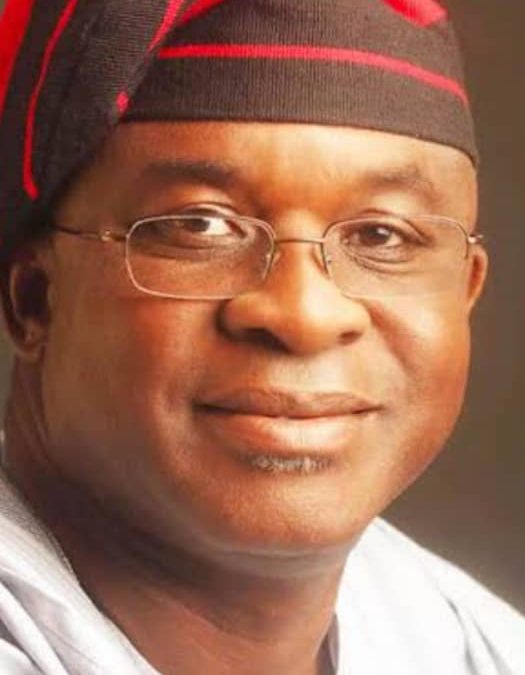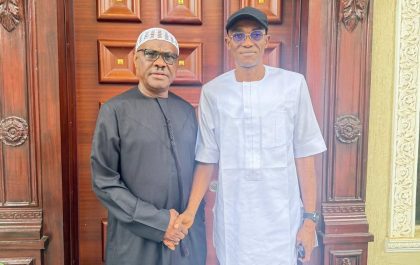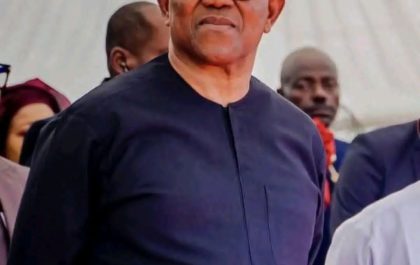Abuja, Nigeria. In a strategic show of unity and resolve, all 37 state chairmen of the African Democratic Congress (ADC) have declared their full support for the party’s newly constituted interim leadership under the stewardship of former Senate President, David Alechenu Bonaventure Mark. The endorsement came after a high-level meeting held in Abuja over the weekend.
The closed-door gathering, which brought together ADC chairmen from all 36 states of the federation and the Federal Capital Territory, signals a decisive turning point for the party as it positions itself for relevance in Nigeria’s fast-evolving political landscape ahead of the 2027 general elections.
A Move to Rebuild, Realign, and Reignite.
According to insiders, the appointment of David Mark, an elder statesman with deep national experience, as interim leader is part of a broader effort to stabilize the party after months of internal wrangling and perceived lack of cohesion. His emergence follows weeks of consultations with key stakeholders, civil society groups, and technocrats aiming to reposition the ADC as a serious contender in Nigeria’s multiparty democracy.
Speaking after the meeting, a spokesperson for the state chairmen affirmed their confidence in Mark’s leadership, citing his distinguished political record and his capacity to broker unity across Nigeria’s diverse political, ethnic, and regional divides.
“We believe Senator David Mark brings not just political experience but moral authority. His leadership of the 7th and 8th Senate and his role in restoring democratic norms in post-military Nigeria give him the credibility we need to move forward,” the spokesperson said.
David Mark, a retired army general and two-term Senate President (2007–2015), is widely respected for his role in stabilizing the National Assembly during turbulent political times. As a member of the PDP, he presided over landmark legislation, championed electoral reform, and was instrumental in the doctrine of necessity that enabled then-Vice President Goodluck Jonathan to assume presidential powers during President Umaru Yar’Adua’s health crisis.
Mark’s cross-party appeal and understanding of political structures across the six geopolitical zones make him a unifying figure at a time when many smaller parties like the ADC struggle with internal divisions and national relevance.
A New Chapter for the ADC
Founded in 2005, the African Democratic Congress has carved a niche for itself as a progressive alternative party advocating youth inclusion, innovation in governance, and credible electoral processes. The party gained national attention in 2018 when it was adopted by former President Olusegun Obasanjo’s Coalition for Nigeria Movement (CNM) as its preferred political platform.
Despite its potential, the ADC has often suffered from a lack of centralized leadership and strategic coherence, particularly at the national level. The chairman’s endorsement of the new interim leadership is being seen as a watershed moment.
Political analyst Dr. Zainab Maji described the move as “the clearest sign yet that the ADC is serious about building internal discipline and a solid grassroots structure that can compete with Nigeria’s big two, APC and PDP.”
2027: The Road Ahead
With the 2027 general elections on the horizon, the ADC’s focus under the interim leadership will likely include:
Revalidation and harmonization of party registers across all 774 LGAs
A national policy retreat for stakeholders
Strategic alliances with civil society and youth-led movements
Branding and digital media expansion
Transparent internal primaries
Already, there is speculation that the David Mark-led team could be laying the groundwork for a possible merger or coalition arrangement with other reform-minded parties disillusioned by the dominance of the APC and PDP.
As Nigeria’s political terrain continues to shift, the ADC’s move to rally behind a seasoned national figure like David Mark might offer the credibility and structure the party needs to re-enter the mainstream political conversation. Whether this unity endures beyond the interim phase will depend on how inclusive and reform-driven the coming months prove to be.
By
Tori For Town
King Eze
Related posts
Subscribe for newsletter
* You go receive the latest tori wen you put your email



